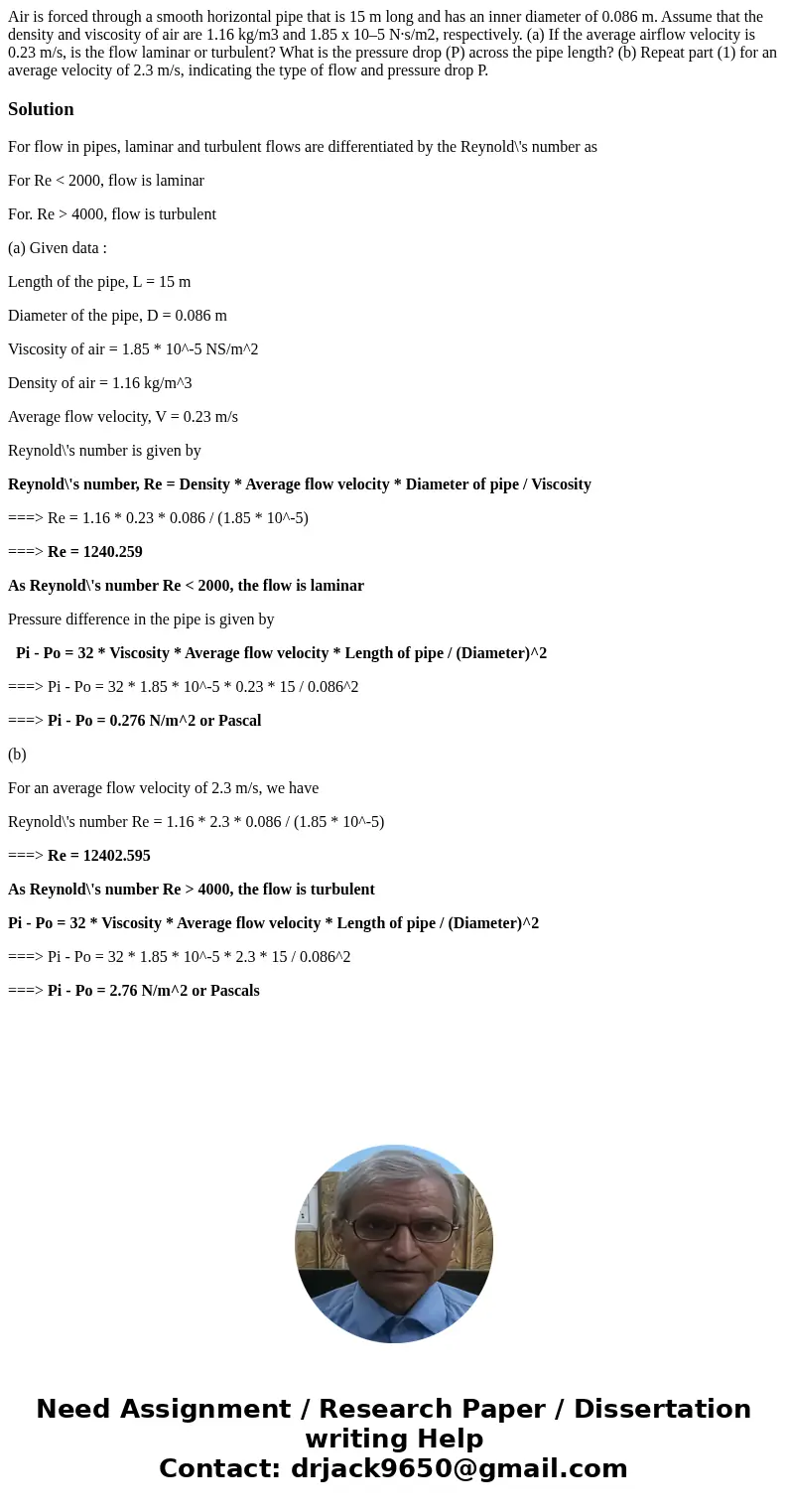Air is forced through a smooth horizontal pipe that is 15 m
Air is forced through a smooth horizontal pipe that is 15 m long and has an inner diameter of 0.086 m. Assume that the density and viscosity of air are 1.16 kg/m3 and 1.85 x 10–5 N·s/m2, respectively. (a) If the average airflow velocity is 0.23 m/s, is the flow laminar or turbulent? What is the pressure drop (P) across the pipe length? (b) Repeat part (1) for an average velocity of 2.3 m/s, indicating the type of flow and pressure drop P.
Solution
For flow in pipes, laminar and turbulent flows are differentiated by the Reynold\'s number as
For Re < 2000, flow is laminar
For. Re > 4000, flow is turbulent
(a) Given data :
Length of the pipe, L = 15 m
Diameter of the pipe, D = 0.086 m
Viscosity of air = 1.85 * 10^-5 NS/m^2
Density of air = 1.16 kg/m^3
Average flow velocity, V = 0.23 m/s
Reynold\'s number is given by
Reynold\'s number, Re = Density * Average flow velocity * Diameter of pipe / Viscosity
===> Re = 1.16 * 0.23 * 0.086 / (1.85 * 10^-5)
===> Re = 1240.259
As Reynold\'s number Re < 2000, the flow is laminar
Pressure difference in the pipe is given by
Pi - Po = 32 * Viscosity * Average flow velocity * Length of pipe / (Diameter)^2
===> Pi - Po = 32 * 1.85 * 10^-5 * 0.23 * 15 / 0.086^2
===> Pi - Po = 0.276 N/m^2 or Pascal
(b)
For an average flow velocity of 2.3 m/s, we have
Reynold\'s number Re = 1.16 * 2.3 * 0.086 / (1.85 * 10^-5)
===> Re = 12402.595
As Reynold\'s number Re > 4000, the flow is turbulent
Pi - Po = 32 * Viscosity * Average flow velocity * Length of pipe / (Diameter)^2
===> Pi - Po = 32 * 1.85 * 10^-5 * 2.3 * 15 / 0.086^2
===> Pi - Po = 2.76 N/m^2 or Pascals

 Homework Sourse
Homework Sourse